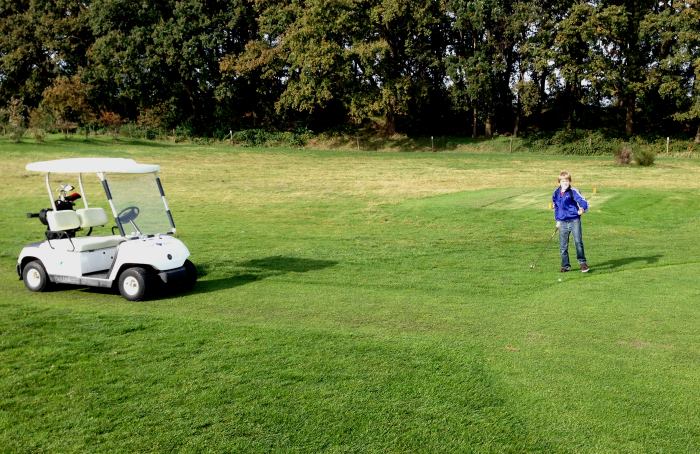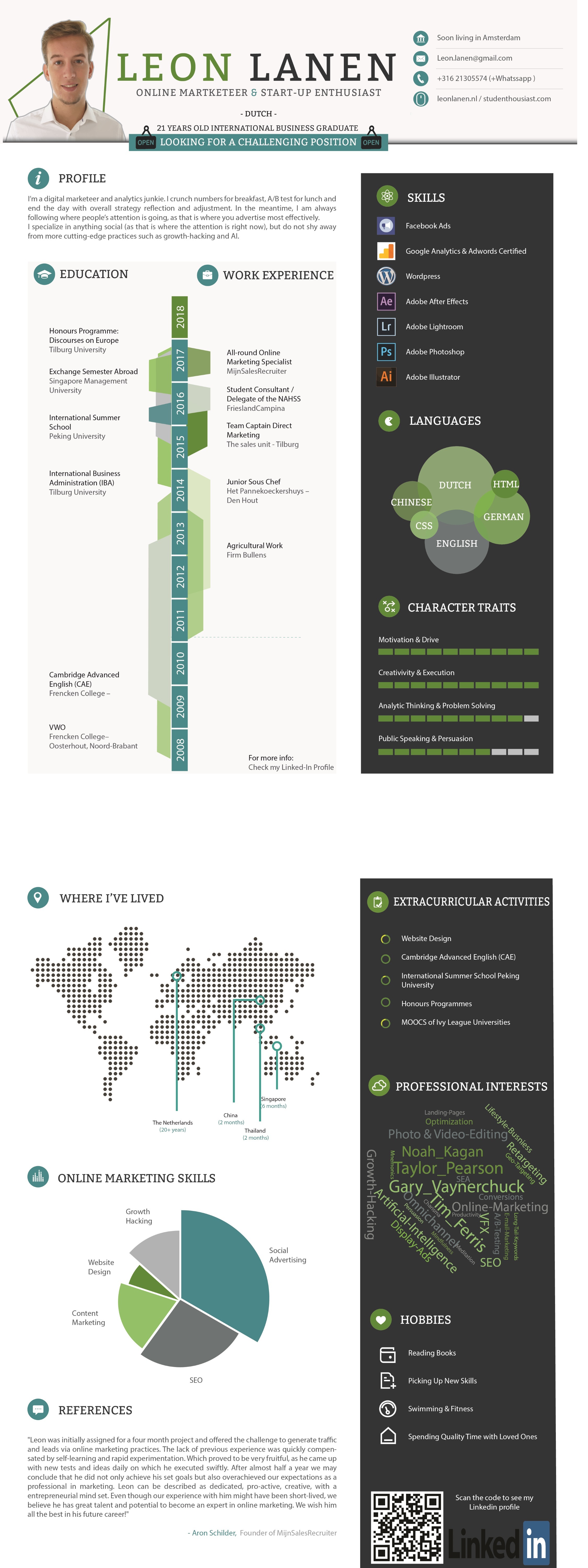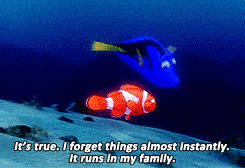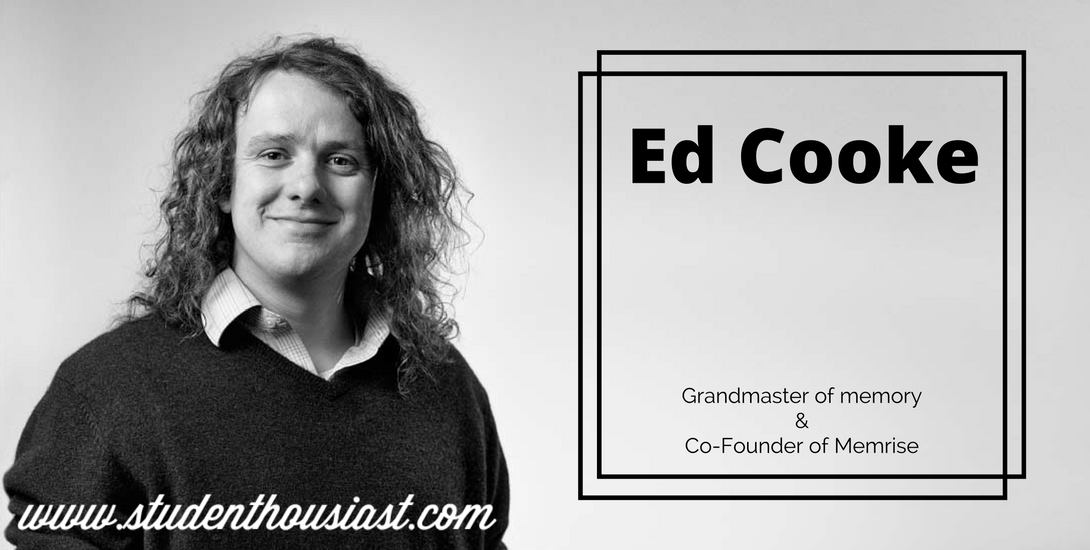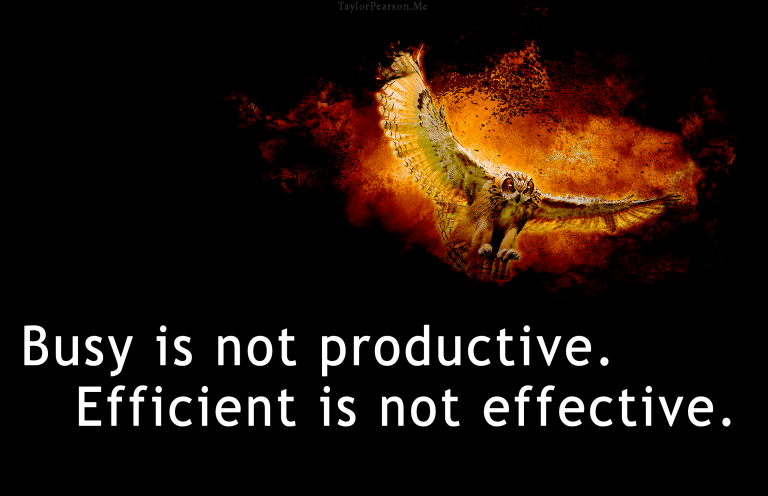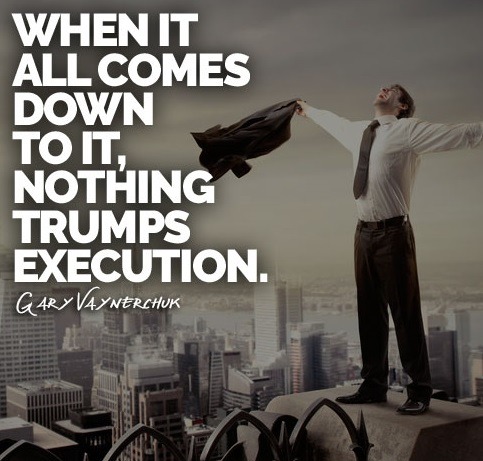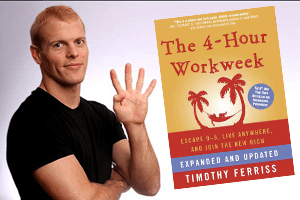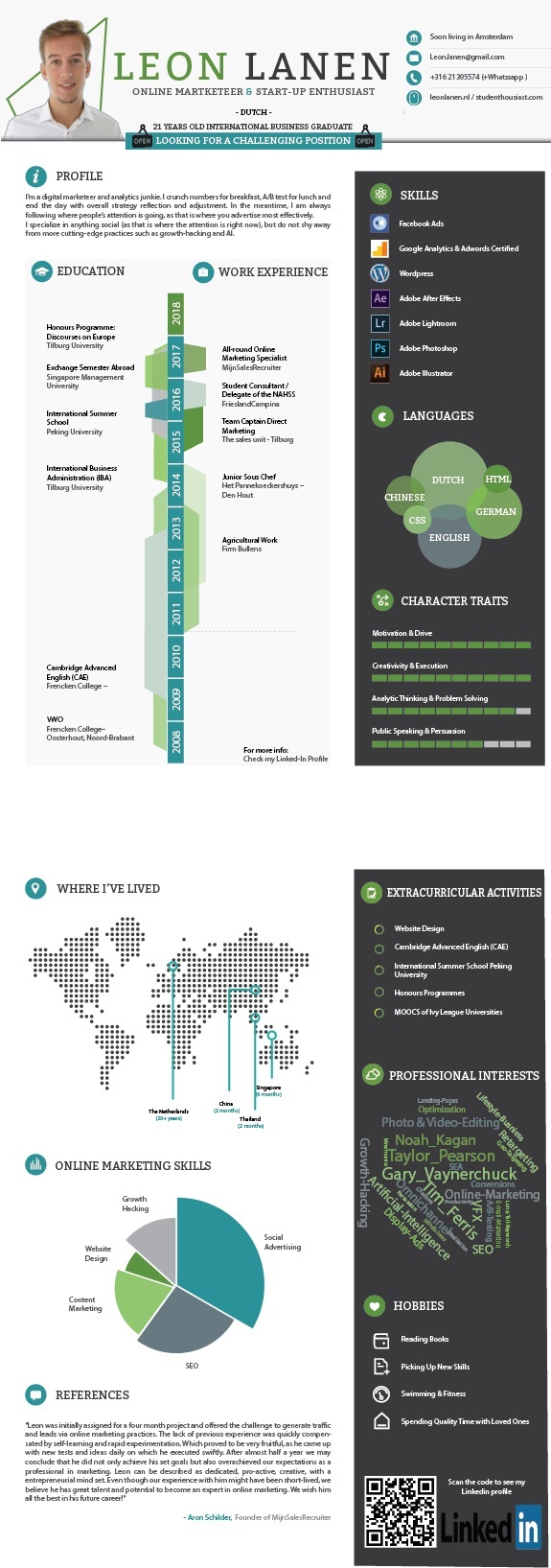It doesn't matter whether you're still in school or you're crushing it in a career. An increase in productivity or improvement in overall memory would result in a game-changing improvement in our daily lives.
If you're like me, don't you often hear "I can't create any more hours in a day" or "I can't remember everything"? Or if you're one of those people, stop complaining. As we're here to shine a new light on the story.
Why is this important? Alright look, if taught to use effectively, a more efficient and effective mind makes a world of difference. Just knowing how our minds work, you can remember stuff WAY quicker and get more done throughout the day.
So that's our goal for the day. Teach you more about your big hump of gray matter.
This makes you better equiped to achieve your goals (sooner), feel more relaxed and create more time off for possible passion projects (like this blog is for us!).
So please, relax for a moment, and imagine a world where you finish tasks early, your memory is razor-sharp and clear, and you never have trouble remembering names again. Sounds too good to be true, right? Think again.
After you finish reading this, you will notice some immediate changes if you start applying some of our tips throughout your day. And as you practice, these changes will become more and more evident, and in the long-term quite possibly even life-changing.
Are you ready? It's quite a read, so buckle up, get comfy and don't forget to bring some snacks!
PRO TIP! (Click Here!)
To have a more enjoyable and immersive reading experience, you should go into full screen mode (on pc!)! Never tried it? You've been missing out then!
Here's how to do it:
Windows & Linux: Press F11
Mac OS X: Press Cmd+Shift+F
If you don't like it, just toggle back by hitting the same keys. But trust me, if you get used to it I promise you you'll love it!
Oh and if you were wondering... You can easily read our blogs on mobile!
"It always seems impossible, until it's done." - Nelson Mandela
Click to Tweet
Productivity Decoded
The reason most people trying to learn how to be more productive at work start at working harder, is that it’s the most visible form of productivity.
It’s extremely difficult to correlate input with output. Were the three hours I spent writing that report this morning productive? Did the 15 e-mails I just sent really add value?
In most cases, it’s hard to know. Especially if you work in a large organization, it’s effectively impossible to know who is generating the results and who isn’t. Even in small organizations or one-man shops, it’s difficult to know which activities lead to real results.
And so, we assume the solution is to simply put in more hours. And that’s true, up to a point:
After two to four hours a day or 10 to 20 hours per week, you cross a threshold where you can’t do any more high-level creative work but perhaps still have the energy to do managerial and administrative tasks. As these tasks require less focus and energy.
It usually is quite a struggle already to even get to a peak productivity state. This process is usually hindered by task switching. 'Task switching' is the correct term for the faulty term 'multi-tasking'.
Since there has been a lot of research in this field it is shown time and time again that everytime you get distracted by your phone, or simply switch to do something else, there is a cost.[1. https://www.psychologytoday.com/blog/brain-wise/201209/the-true-cost-multi-tasking ]
We fool ourselves. We are pretty good at switching back and forth quickly, so we THINK we are actually multi-tasking, but in reality we are not.
While task switch costs can be minimized by strategies like batching (doing related tasks at the same time) and deep work (blocking out long period of time for important tasks requiring deep thinking), it cannot be totally eliminated.
This is why it’s extremely difficult to achieve high levels of productivity when you are, for example, travelling all the time. As you then don’t have enough time to really ramp up to the peak of your productivity and focus.
Now you might be wondering "what about the negative productivity part? Is that even possible?". Yes it is. If you look at writers for example, they often work long hours in a day, especially right before a deadline. When they overwork themselves, they will start to descend into the negative part of the curve. Meaning that the work they do will be of such reduced quality, that they will have to go over it the next day to edit and remove the sections that are inadequate. This gulps up unnecessary time, hence negative productivity.
Based on research from Stanford [2. https://cs.stanford.edu/people/eroberts/cs181/projects/crunchmode/econ-hours-productivity.html ] it is proven that workers who worked sixty hour weeks were actually less productive than those who worked forty hour weeks. Constantly working more than 30-50 hours per week will harm your productivity. However, an occasional 50-60 hour week can't do much harm, but it's not sustainable. So negative productivity is a thing.
Working Smarter
Now we know how to max out on working harder, it's time to learn how to work smarter . Working smarter can be split into two parts, study and hacking. Both highly relevant in their own way, as you'll see.
Study
Study is the process of learning new things. To effectively study, you should not limit yourself to only consuming explicit knowledge. This being the 'dry' knowledge received from books. This kind of knowledge can be quite easily articulated and verbalized.
So while reading books is one of the best ways to develop yourself and learn more about what interests you, it can be hard to make all that knowledge 'stick'.
To fix this, while actually develop long-lasting knowledge, you should apply the knowledge to a situation. Doing this gives you tacit knowledge, the type of knowledge that can't really be written down or verbalized.
While you can read books about playing the guitar to get explicit knowledge, you will never learn how to be a productive guitar player until you develop the tacit knowledge through actually practicing guitar.
The same is true of every area of expertise. As Stephen King wrote about writers:
“If you want to be a writer, you must do two things above all others: read a lot and write a lot. There’s no way around these two things that I’m aware of, no shortcut.”
While we're at it, here's another quote out of a book I implore you to read:
“Information is useless if it is not applied to something important, otherwise you will forget it before you have a chance to apply it.” -Timothy Ferris, The 4-hour Workweek
Hacking your Productivity
The other component of working smart is using so-called “productivity hacks.” Within the time you are doing projects to gain tacit knowledge, there are certain things you can do to increase your effectiveness.
Let's say 99% of everything written ever about productivity falls into this category, simply because it is the most marketable. It usually requires very little time to implement and yields immediate rewards, exactly what consumers love to buy. This is not to say they aren’t useful, they really are, but that if you start from the premise of “I want to be more productive,” productivity hacks are a relatively small piece of the formula.
That being said, here are some I personally found quite useful:
- Create a morning ritual to standardize the first thirty minutes to an hour of your day. Meditate as a part of it.
- Use jumpcut to save a list of things you have copied. So you have a list for later reference.
- Speed up your cursor speed in your settings. Simple, but often overlooked.
- Use a text expander to save commonly used phrases (such as your address or commonly typed URLs).
- Use the Pomodoro Technique to work in chunks. This technique truly saves copious amounts of time.
- Use Freedom.to to block yourself from distracting websites during your creative/grinding time.
- At the end of the day or week, make a list of your least valuable tasks and ask: “Is it profitable?” If not, stop doing it. If yes, can you delegate it?
- Make a “Not To Do List” which lists all the things you frequently waste time on. (answering unknown numbers, responding to emails that should be archived, saying yes to meetings without a clearly defined purpose and agenda).
- Use platforms like Upwork and Fancy Hands to outsource tasks which can be done for less than your hourly rate.
- Use Calendly or similar services to schedule meetings. Saves you a lot of back and forth hassle.
- Use Lastpass to store all your saved passwords.
- Use The Email Game to process your email quicker and less often.
- Plan your days and weeks around your natural rhythms. If you’re a morning person, don’t leave the most important work for the afternoon or evenings, and if you’re a night owl, don’t feel guilty about sleeping later.
- Save articles to the Pocket and read them on your phone instead of leaving twenty tabs open.
- Use Clippings.io to sync your kindle highlights with Evernote so you can easily search through all your book notes.
- Read and implement David Allen’s Getting Things Done system for task management (Check out the book!).
- Batch similar tasks into one chunk. E.g. Cook everything for the week on Sunday afternoon and save it for reheating or pay all your bills on the second and fourth Fridays of the month. Efficiency bitch!
Credits for this list go to: Taylor Pearson.
While all these tips and tools can really help you be more productive, you have to use them carefully. What I mean with this is that you might think using these tools more and more often, but that in the end they start to be a distraction to you, making you lose focus of the real task at hand.
Building Resilience
Another part of productivity is often referred to as resilience. For our non-native English readers, we'll define this. Resilience can be thought of as mental toughness when faced with uncertainty and/or stress. If you are resilient, you can stay productive and will easily adapt to, and cope well with distracting and uncertain situations. Please keep in mind that there are many kinds of resilience, thus this definition is not all-encompassing.
In this example, you should see resilience more as a skill to keep your productivity levels high throughout your day by minimizing distractions. Hereby optimizing productivity by getting into deep work easier and staying in this flow state longer.
If you’re trying to build resilience at school or work, you need adequate internal and external recovery periods. While adequate amounts of sleep is obviously the most straightforward advice, there is much more to it.
As researchers Zijlstra, Cropley and Rydstedt write in their 2014 paper[2. Zijlstra, F. R. H., Cropley, M., & Rydstedt, L. W. (2014). From recovery to regulation: An attempt to reconceptualize ‘recovery from work’. Stress and Health, 30(3), 244-252.] : “Internal recovery refers to the shorter periods of relaxation that take place within the frames of the workday or the work setting in the form of short scheduled or unscheduled breaks, by shifting attention or changing to other work tasks when the mental or physical resources required for the initial task are temporarily depleted or exhausted. External recovery refers to actions that take place outside of work—e.g. in the free time between the workdays, and during weekends, holidays or vacations. Where you go "off-the-grid" and recharge more fully.”
If you really want to build resilience, you can start by strategically stopping work or study. Give yourself the resources to be tough by creating internal and external recovery periods. This can be done by using recent technology/tools to control overworking.
I really suggest downloading the Instant or Moment apps to see the amount of times you turn on your phone each day. The average person turns on their phone 150 times per day.[3. http://abcnews.go.com/blogs/technology/2013/05/cellphone-users-check-phones-150xday-and-other-internet-fun-facts/ .] If every distraction took only 1 minute (which would be seriously optimistic), that would account for 2.5 hours of every day.
If all the above doesn't suffice, you can use apps like Offtime or Unplugged to create tech free zones by strategically scheduling automatic airplane modes, if you're really having trouble staying off your phone. Additionally, you can take a cognitive break every 90 minutes to recharge your batteries.
Lastly, try to not have lunch at your desk, but instead spend time outside or with your friends — not talking about work. Take all of your paid time off, which not only gives you recovery periods, but is proven to raise productivity overall and heightens your chances of promotion [4. https://hbr.org/2015/06/are-the-people-who-take-vacations-the-ones-who-get-promoted.]
The 80/20 Principle
You probably heard of it already from Mr. Tim Ferris, if not, oh boy! you got some reading to do! So for you guys that don't know, the 80/20 principle, often refered to as 'Pareto's Principle', is a way of optimizing your time to be more efficient (and effective).
I will not go into the background of this theory, for that you should go and read 'The Four Hour Workweek'. Which is a book you should definitely read regardless of what I say (you can check it out here (US) and here (EU)). So no background, but what I will do is give you a quick explanation of the theory and a framework to do a 80/20 analysis of your life.
The 80/20 principle works like this: "20% of your actions, inputs, products or services will create 80% of what you want - whatever you want that to be."
Harvard Business Review has proven that practically everything is unimportant. Pareto's Principle has been applied to almost every human endeavor, from software development to investing. (Two examples: 90% of Warren Buffet's wealth is from only ten investments and, in sales, typically more than 80% of revenue comes from only 20% of the sales teams.)
When looking at our own productivity from this perspective, we can cut the 80% of our tasks or projects that are unimportant or don't contribute to our end goals and still achieve 80% of the desired effect (can be money, productivity, etc.). We can remove the fluff, the clutter, the unnecessary, to save time (and often money).
So how would you do this? Do an 80/20 Analysis:
Step 1: Ask the following questions and write the answers down, preferably by hand.
IN BUSINESS
- What 20% of sources are creating 80% of my problems and unhappiness?
- What 20% of sources are resulting in 80% or my desired outcomes & happiness?
IN YOUR PERSONAL LIFE
- What 20% of sources are creating 80% of my problems and unhappiness?
- What 20% of sources are resulting in 80% or my desired outcomes & happiness?
Step 2: The follow-up questions.
- If I was completely incapacitated and had to work max. two hours per day – what would I focus on?
- If I was even more incapacitated and had to work two hours per WEEK – what would I focus and prioritize to get done?
- What are the top three activities I use to fill time and feel as though I’ve been productive (e-mail)? What are my CRUTCH activities?
- When do I feel STARVED FOR TIME? What commitments, thoughts, and people can I eliminate to fix this problem?
Step 3: Most Important! Take some goddamn action!
- 20% biggest impact positive things -> Defines TO DO LIST
- 20% most negative things -> Defines NOT TO DO LIST
- What is the financial impact (or other relevant impact) of each of these activities?
- Can the activities in the unnecessary 80% be eliminated? How?
- Or can these activities be delegated? How?
- Perhaps these activities be automated? How?
- Do your research! To give you some pointers, think about virtual assistants (google it!) for delegation / automation. Read books on the topic (like The Four Hour Workweek!) . Be creative!
- Define CONCRETE steps (especially next steps) for how to do each of the above. Lay out the possible losses from eliminating and rank your activities in this way. Lay out a roadmap of steps to take for overcoming possible mistakes in elimating.
- Focus on eliminating as much as possible FIRST.
This is our first post, so all feedback is much appreciated!
p.s. don't forget to share if you like what you've read 😉




